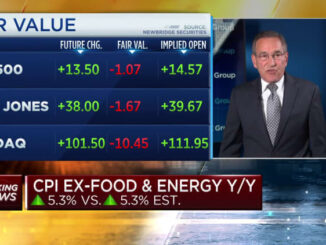
Expectations that high inflation may persist for longer than previously projected put pressure on mortgage rates last week. In turn, it affected borrowers’ appetite for home loans.
The latest Mortgage Bankers Association (MBA) survey showed that mortgage loan application volume declined 7.7% for the week ending Feb. 10 from the previous week. Compared to the same week last year, mortgage apps are down 57%.
“Mortgage rates increased across the board last week, pushed higher by market expectations that inflation will persist, thus requiring the Federal Reserve to keep monetary policy restrictive for a longer time,” Joel Kan, MBA’s vice president and deputy chief economist, said in a statement. “Mortgage applications decreased for the second time in three weeks because of these higher rates.”
The Bureau of Labor Statistics reported on Tuesday that the Consumer Price Index rose by 6.4% in January compared to a year ago. The increase is lower than the 6.5% posted in December and the smallest year-over-year since October 2021.
But, according to experts, the report brought adjustments to the fourth quarter CPI numbers, indicating the disinflation process was slightly slower than expected.
“Today’s report suggests that the downward trend in inflation may be bumpier than had hoped. It means that the Federal Reserve will push forward with rate hikes through the spring, which will increase borrowing costs for consumers and businesses,” Lisa Sturtevant, Bright MLS’ chief economist, said in a statement.
According to the MBA data, the 30-year fixed-rate mortgages with conforming loan balances ($726,200 or less) increased to 6.39% for the week ending Feb. 10, compared to the previous week’s 6.18%. Rates for jumbo loan balances (greater than $726,200) rose from 5.96% to 6.26% in the same period.
Mortgage rates were even higher at Mortgage News Daily on Wednesday morning, marking 6.62%.
Mortgage loan types
The MBA data shows refinancing demand is in free fall, as there is little financial incentive to act, which is keeping borrowers on the sidelines. Compared to the previous week, applications for refis declined 13% for the week ending on Feb. 10. It was also 76% lower than the same week one year ago.
Consequently, the share of refis in mortgage activity fell to 32% of the total applications from 33.9% the previous week. The FHA share rose from 11.9% to 12.6%, the VA share declined from 13.4% to 12.6%, and the USDA remained at 0.6%. Adjustable-rate mortgages increased to 6.9% of the total.
According to the data, purchase applications are also declining, down 6% week over week and 36% year over year. Last week, purchase apps hit the lowest level since the start of the year.
“Potential buyers remain quite sensitive to the current level of mortgage rates, which are more than two percentage points above last year’s levels and have significantly reduced buyers’ purchasing power,” Kan said.



